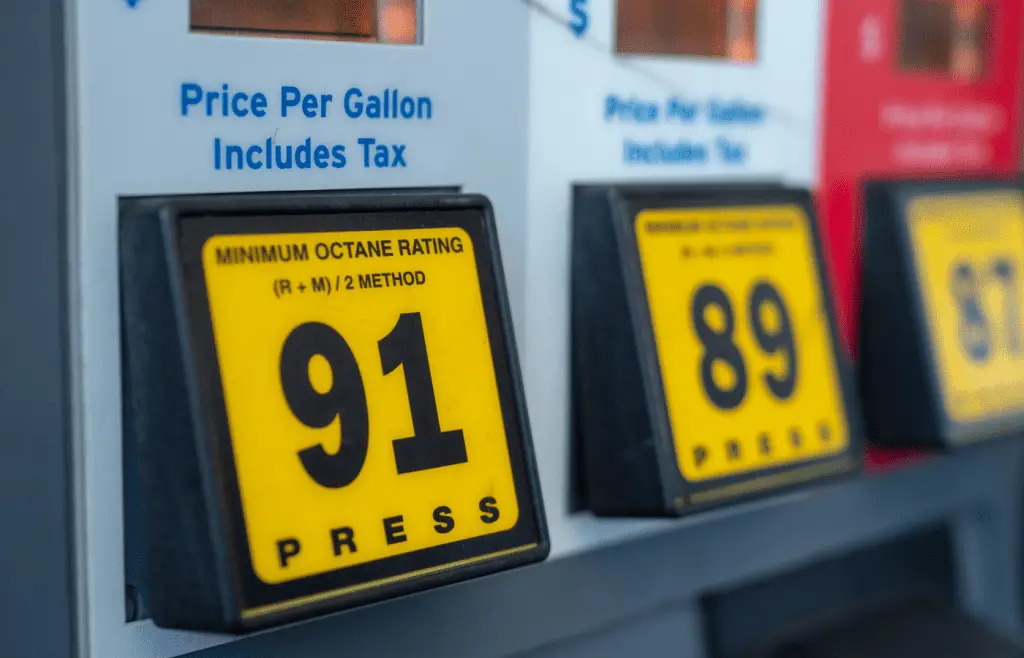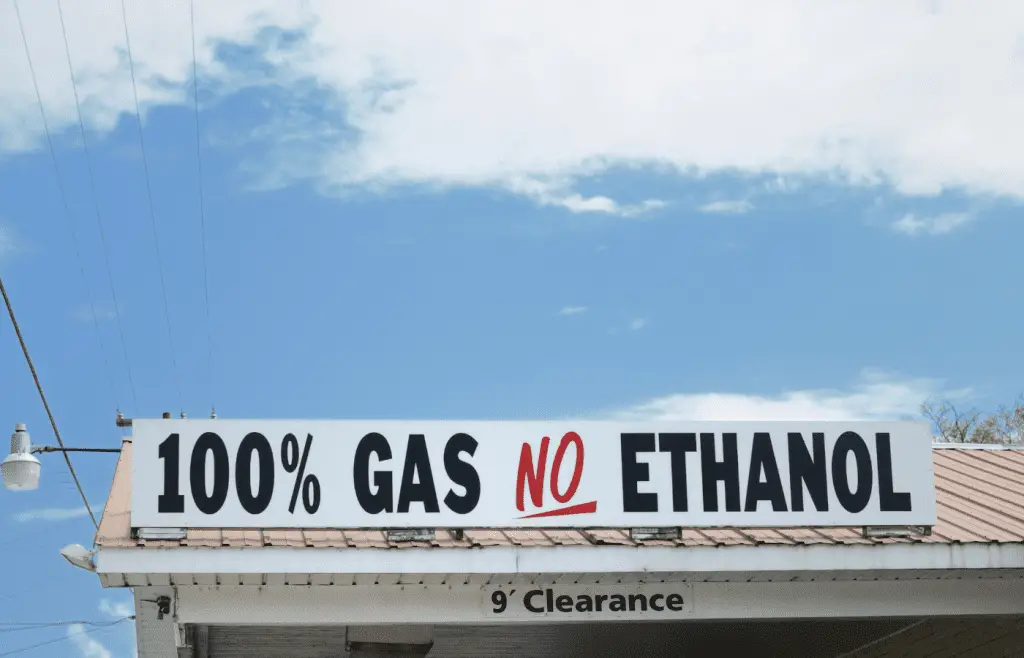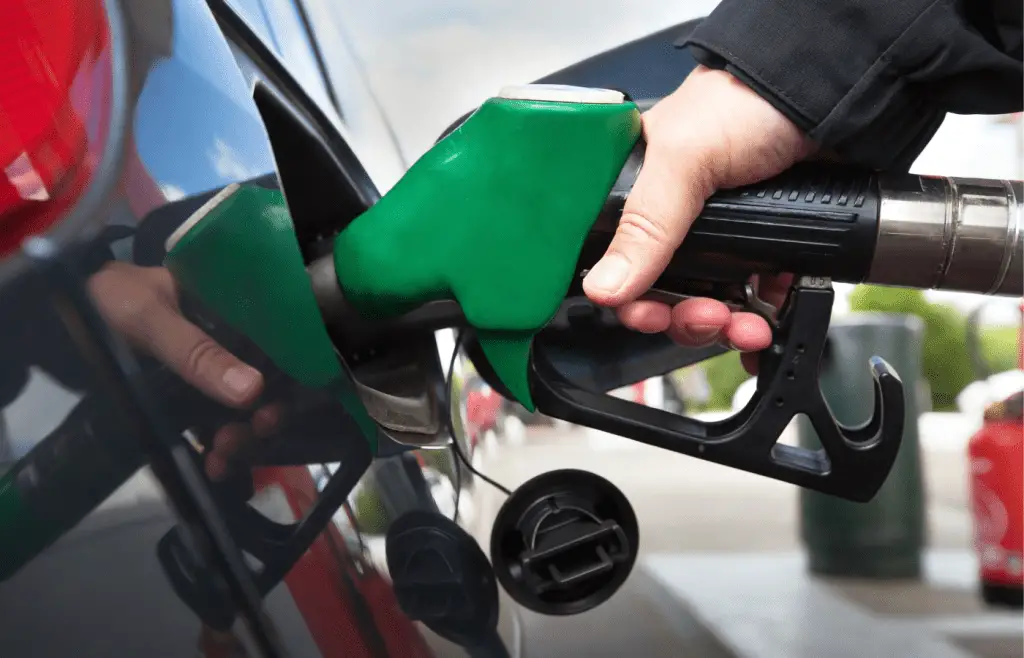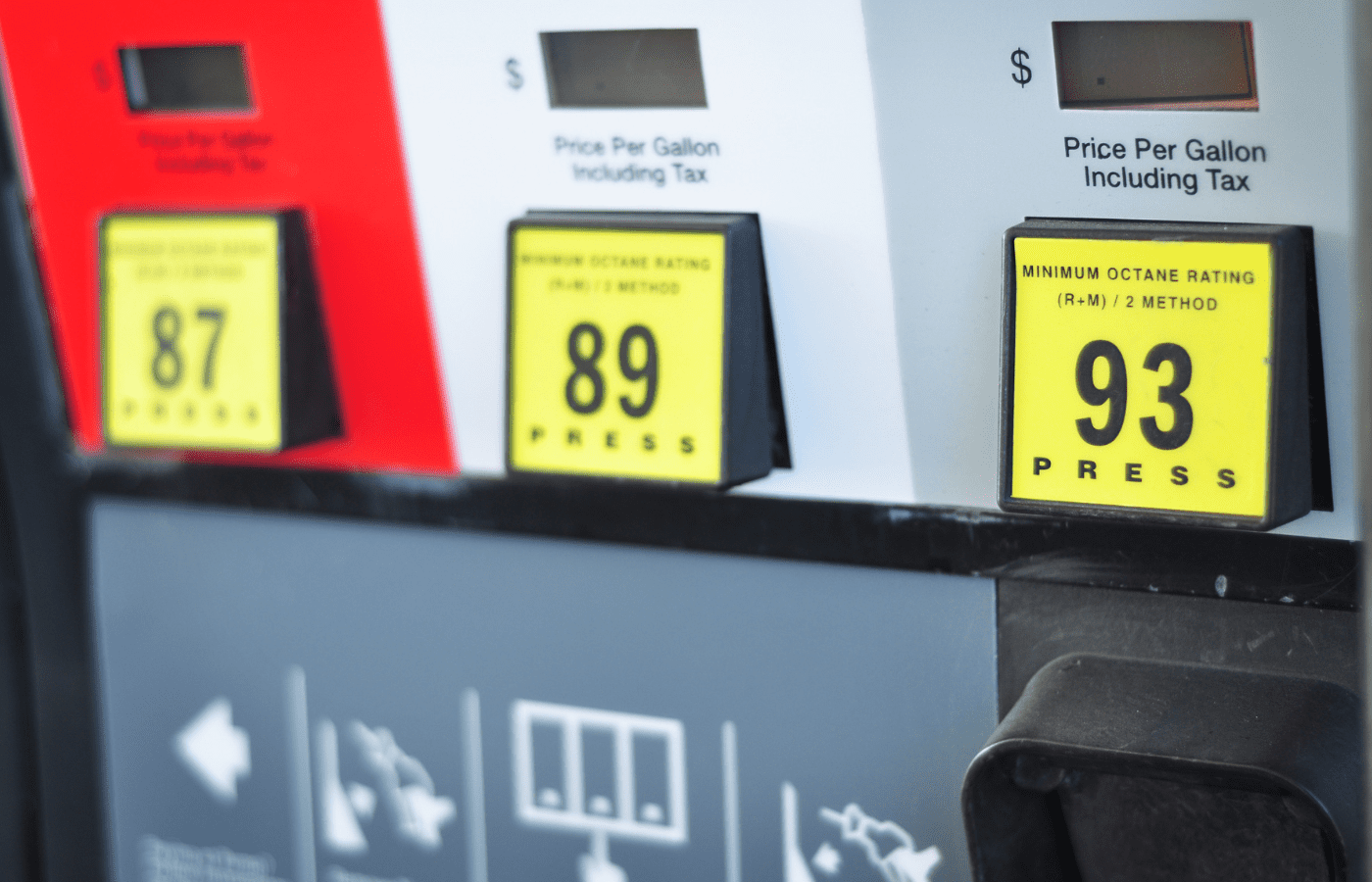Premium gas is not ethanol free. According to the US Department of Energy, more than 98% of U.S. gasoline contains up to 10% ethanol to boost octane ratings, meet the air quality guidelines, or to satisfy the Renewable Fuel Standard.
Gasoline that is at most 10% ethanol is considered to be E10, however this does not qualify as an alternative source of fuel under the Energy Policy Act. E10 is considered to be the safe limit for the amount of ethanol to gasoline in gasoline vehicles that aren’t primarily made to run flex fuel, or a blend of E85.
Even your favorite gas stations such as Shell, Chevron, and 76 all contain a small amount of ethanol in even their premium blend gasoline.
What Percent of Ethanol Is in Premium Gas?

In the USA, premium gasoline has a 10% ethanol content. Ethanol requirements actually vary from state to state. Each state has their own freedom when it comes to their rules and regulations on how much ethanol has to be in their gasoline.
There are currently only six states that have a mandatory ethanol law and that is Hawaii, Minnesota, Florida, Oregon, Missouri, and Washington. Other than these states,
Does 91 Octane Fuel Contain Ethanol?
91 octane is found in states with higher altitudes, such as California. 91 octane fuel does in fact contain ethanol by up to 10%.
California, being one of the strictest states for Air Quality Control, is one of the only states to offer only 91 octane as their premium option.
Does 93 Octane Gas Contain Ethanol?
93 octane gasoline also contains a certain amount of ethanol. The added ethanol content in the gas is used to increase the octane rating.
93 Octane is the preferred choice for turbo-charged cars for two reasons. One is that it burns cleaner, and two, it helps reduce knock or pre-detonation in the cylinder walls of the engine.
Does 93 Octane Have More Ethanol Than 87 and 91?
93 octane gas contains a higher ethanol content than 87 and 91. 93 octane gasoline can have up to 15% ethanol, while 91 octane contains about 10%.
87 octane gasoline can have anywhere between 5-10% ethanol.
What Gas Grade Has No Ethanol?

All grades of gas in the United States will have a minimum amount of ethanol, unless otherwise stated. There are specific gas stations around the world that have pure gasoline with no ethanol, but these are few and far between.
We recommend checking out pure-gas.org. This site is a very helpful resource if you are looking to find ethanol free gas stations near you.
They have filtered all the gas stations by state and locations which makes finding your nearest ethanol free gas station simple.
They also have a unique feature where you can add a gas station to their list that contains ethanol free gas to expand to their ever growing library of gas stations.
Some states will have a lot more gas stations with ethanol-free gas, such as Arkansas. If you live in Arkansas, you will find that it is much easier to fill up with 100% pure gasoline.
This is because Arkansas has different rules and regulations than a more strict state like California.
Why Is Ethanol Added to Gasoline?
Ethanol contains a higher octane number than just gasoline alone. This can help with providing premium blending properties. There are minimum octane ratings required for most cars to operate efficiently and to prevent engine knocking.
If high octane vehicles are fueled with low-octane fuel, the chances of knock significantly increases which can results in engine detonation.
On top of giving your gasoline a higher octane rating, ethanol also allows the gas to burn more efficiently and cleaner.
What is Engine Knock?
The term engine “knock” refers to gasoline that is detonating inside the cylinder prematurely, instead of at the top where the spark plug is, which can result in the damage of internal components.
High octane gasoline, such as 91 and 93, are the preferred choice for turbo charged engines since they have a higher compression ratio than non-turbo engines.
High compression engines have a higher chance of detonation than their non-turbo counterparts. This is why minimum octane ratings for turbo-charged engines is 91 or higher.
Is Gasoline With Ethanol Better?
Gasoline that is mixed with Ethanol is better in terms of performance and increased power in your vehicle. Since a higher octane gasoline burns cooler, there are more variables that can be played with within a cars ECU to output better performance numbers, without sacrificing damage to the engine.
However, in terms of MPG, gasoline with ethanol performs worse. The higher the ethanol rating, the less MPG your car will be getting.
This is because ethanol contains about one-third less energy than gasoline. To put this into perspective, a vehicle with E10 will get about 5% fewer miles per gallon than gasoline without ethanol at all. E15 will get about 4% fewer MPG than E10.
Is Ethanol Bad for Your Car?

Ethanol is a very controversial fuel additive amongst car companies and the Department of Energy. The main reason for having ethanol in gas is to help the environment.
Ethanol was tested and is a considerably better option for the environment than 100% gasoline. Vehicles that ran purely on ethanol, flex-fuel vehicles, produced lower carbon dioxide emissions than their regular gas counterparts.
But is ethanol bad for our cars? Ethanol can damage many parts of a car, especially at concentrations greater than the standard 10%. Ethanol can wreak havoc on fuel pumps, gas tanks, gaskets, and attract moisture into the fuel tank.
A car that is not specifically designed to run purely on ethanol will become ruined over time the longer it is exposed to this type of fuel.
Many times, when a car undergoes a flex fuel upgrade, you must change out the fuel pump, fuel lines, and fuel injectors to help mitigate the damage from running an ethanol based fuel.
Final Thoughts
Just because gasoline is premium, or has a higher octane rating, does not mean that it is ethanol-free. This is actually far from the truth. More than 98% of the gasoline in the US actually contains at least 10% ethanol.
Adding ethanol to gasoline helps increase the octane rating of gasoline, meet certain air quality guidelines, and to help cars burn fuel cleaner and more efficiently.
If you are looking for ethanol-free gas, check out pure-gas.org for a big list of gas stations in your state that have ethanol-free fuel.

